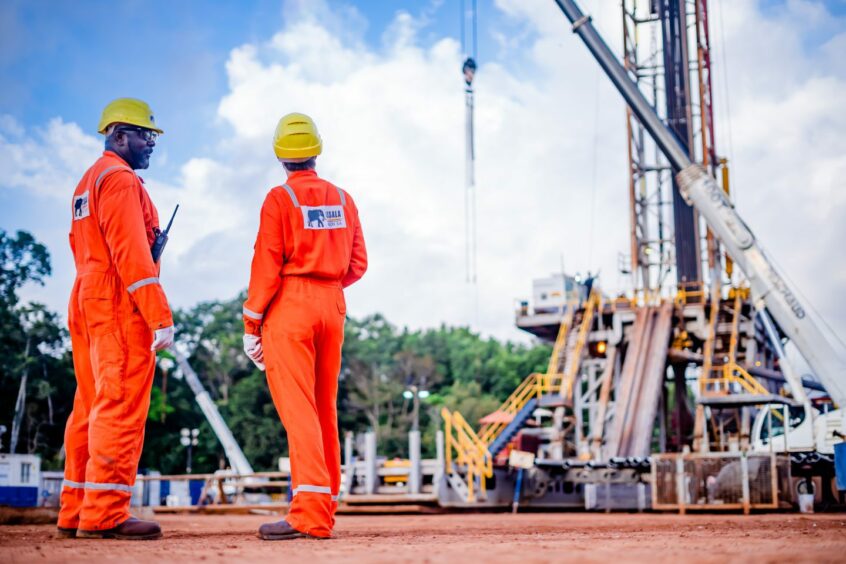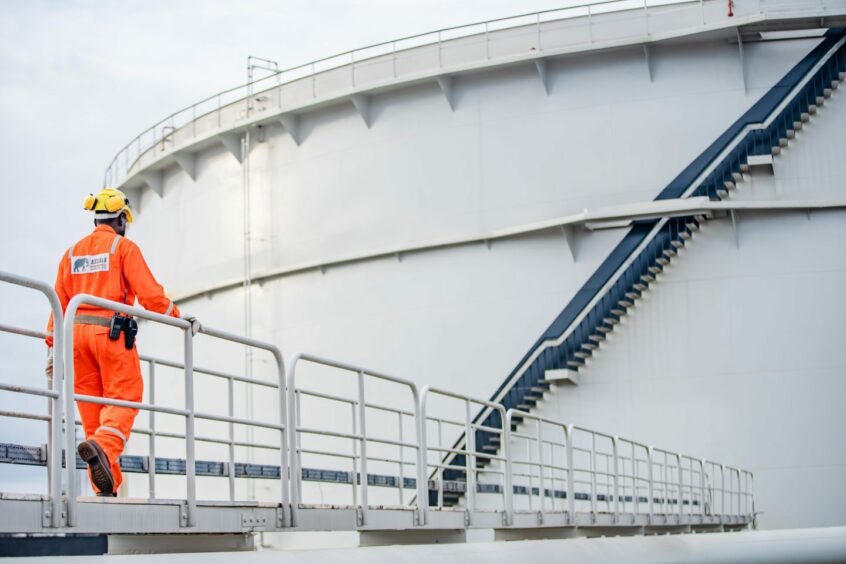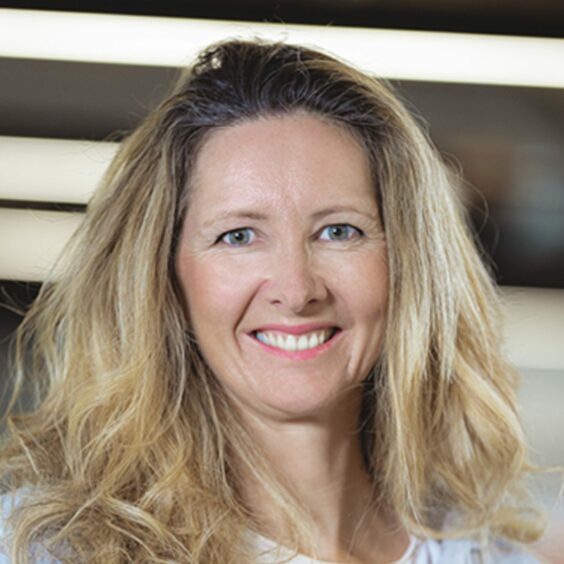
Assala Energy is up for grabs as private equity backer Carlyle Group works on an exit, but the model – of rehabilitating mature assets and turning a profit – has been proven.
Pertamina-backed Maurel et Prom said, in mid-June, that it was in “advanced discussions” with Assala’s shareholder on buying the company.
Assala CEO David Roux acknowledged that talks were under way but that nothing, yet, had been signed. “It’s the end of the cycle, it was on our radar when we started, it’s a normal progression for private equity investments.”
Roux said the executive team was “happy and proud” of the work done at Assala over the years. The cycle began in the 2014-16 downturn, when Roux – and Assala head of ESG Caroline Siourt – were both at Tullow Oil.
Majors were in the process of selling down mature assets, but Tullow was in no position to acquire them.
“It got to a point where we told ourselves that some of those opportunities were really good and that maybe if we couldn’t do them with Tullow, we could do them ourselves,” Roux said. They “knocked on some doors” and found a home with Carlyle International Energy Partners (CIEP).
The asset in their sights was Shell’s mature holdings in Gabon. “We had full clarity from Carlyle that they understood what the project was about and they would support us. We had no interest in just laying off staff and running away with the money.”
In turn, Roux and his team understood that Carlyle’s investment came with a limited lifespan. “It was not a deal where we would sit on it for 50 years.”
Done deal
The first challenge for the Assala team was around tackling the problems that Shell was facing in Gabon. The supermajor was selling down because it was losing money and, as a result, was not investing in the assets.
“Shell invested $11 million the year we were examining it, that meant there was no maintenance, no investment and no care – it was enough for a pain au chocolat,” Roux said. Shell had other priorities, at the time focusing on major projects such as LNG facilities and the acquisition of BG Group.
This presented an opportunity for Assala, the CEO said.
Assala paid $628mn for the Shell assets, while also taking on $285mn of debt. It covered Shell’s five operated fields – Rabi, Toucan/Robin, Gamba/Ivinga, Koula/Damier, and Bende/M’Bassou/Totou. It also gained non-operated stakes in more, plus the onshore pipeline system from Rabi to Gamba and the Gamba Southern export terminal.
Catching up
The first area to address was maintenance. “The uptime of facilities was appalling, at around 85%. That means 15% of the time those fields are not producing.” The lack of production took its toll on cashflow.
Assala named operational excellence as one of its three core pillars. “We immediately tackled the uptime problem and shut-in wells. By investing in the right maintenance, we increased production 15%.”
Another of the reasons for Shell’s lack of interest in the assets was around the high cost base of production – too high for such an asset. For instance, the company had three offices in Gabon. “It’s a tiny country”, Roux said.
“There were no skills in the country. Whenever there was a problem, the company would fly in an expensive expat worker. No one in the country had any clue as to what was going wrong, that’s a very expensive way of operating.”
Operational expenditure was around $350mn under Shell. Assala came in with the plan to reduce that to $250mn and is now running at $200mn per year.
“That’s not cutting costs with a machete and being unsafe. We’re doing more with safe facilities. It’s not just good to cut costs and allocate that cash to other areas but it also facilitates financing of the company, making it a stronger business able to cope with crises.”
Assala inherited a “large backlog” of maintenance, Sourt said. The company appointed a specialised crew to tackle the backlog and another to handle the day-to-day requirements.
The COVID-19 pandemic was just such a crisis. Assala cut activity for 11 months, with Roux attributing survival to the strengthened company.
Incremental plans
Bringing opex under control also helped Assala launch new projects. “Not only did Shell not add capital for Gabon because of competition for capital across its portfolio, but also because any project would not fly because of the overloaded operating costs.”
Unlocking incremental projects is the second of Roux’s pillars for Assala. The move was made possible because of shareholders agreeing to back the investments, prioritising this over the extraction of dividends.
“We reinvested massively”, Roux said, “at the scale the assets deserved.” He put the development costs over Assala’s life at $1.1 billion, in addition to some exploration and acquisitions, from TotalEnergies. The company also arranged some asset swaps with Perenco.
In addition to a lack of maintenance, Shell had only drilled a handful of wells on the fields over the last 10 years.
This month, Assala will have reached the 50-well mark for drilling, in five and a half years, and 170 workovers.
Roux explained that, while fields such as Gamba and Rabi were old, they had “huge oil in place and still lots of opportunities. We’ve been drilling like hell and working over like hell.”
Of the $1.1bn, 70% went on wells and 30% on integrity, debottlenecking and facilities, Roux said.
On target
On acquisition, the assets were producing around 40,000 barrels per day. By March 2020, the Assala team had increased this to 60,000 bpd.
As the pandemic raged, Assala stopped spending and production dropped. Roux said without spending, natural decline would cut production 15-20% per year.
As it returned to spending, the company has increased production also. Currently, the fields have output of around 55,000 bpd and should reach 60,000 bpd later this year or early in 2024.
While production has risen, Assala does not set itself output targets. “It’s an output of the work we do. We’re more interested in reserves,” the CEO continued.
In 2017, the company acquired 70 million barrels of 2P reserves. It has produced around that number since being in control and now has 120mn barrels of 2P reserves.
“That tells you how the investments are important for such assets. The key indicator is the reserve replacement ratio, for us it’s at 180%.”
ESG standards
Assala took the position, from the outset, that it could carry out its functions as an oil company, while also performing to high ESG standards.
Among the early discussions, Roux said, was the importance of values. Assala works to International Finance Corp. (IFC) standards, he said, and are audited on this basis. In addition, all its sites are ISO 14000 certified.
“From the beginning, it was really important to establish the how. I can proudly say that’s what separates us as a company,” Sourt said. “We believed, from the off, that we could be a responsible company and do extremely well.”
Assala did not set production targets because it wanted to avoid the suggestion of output at any cost. “We consider the social and environmental aspects of every project we do. If we get those rights, the production will come.”
One point of pride for the company is that, according to Sustainalytics ratings, it is in the top 7% of all oil and gas producers
A move to localise operations has seen the company cut costs and provide more support for communities. Moving away from the model of bringing in expats, Assala “took a different approach and internalised a huge amount of those skills,” Sourt said. “There’s now a huge amount of work done by the Gabonese workforce. We have the first ever OIM female onshore installation manager, we have a lot of firsts.”
Assala has also worked with local communities to support the creation of SMEs to work with the company. Sourt explained she had led talks with local leaders and suggested an alternative to the old ways of doing things.
The ESG executive explained what Assala needed, and offered to provide support – ranging from HR assistance through tender qualification.
“When there is no more oil, it will be a non-event for these communities as they will have their own businesses,” Sourt explained. These concerted actions are “music to the ears of lenders, shareholders and insurers”, she said.
The business case
A group of European and US banks have backed Assala, in addition to Shell’s trading arm. “Debt is important, it’s cheaper than equity, and we have maintained access to banks. They all have ESG standards and ensure that we comply.”
Assala’s attractiveness to banks is demonstrated by its ability to refinance its reserve-based lending (RBL) facility. Given the reserve replacement ratio, the “RBL has increased and the borrowing base could support up to $800mn today. We don’t use that debt capacity, but it’s always good to have in case of bad weather – or an acquisition opportunity.”
Another group that should pay attention to such aspects are sellers, Sourt continued. “Majors will leave for whatever reason. But who are they leaving behind and where is the due diligence on that? There’s a reputational impact if you sell out to people who are focused on making money at any cost. We’ve proved that you don’t need to do that.”

 © Supplied by Assala Energy
© Supplied by Assala Energy © Supplied by Assala Energy
© Supplied by Assala Energy © Supplied by Assala Energy
© Supplied by Assala Energy